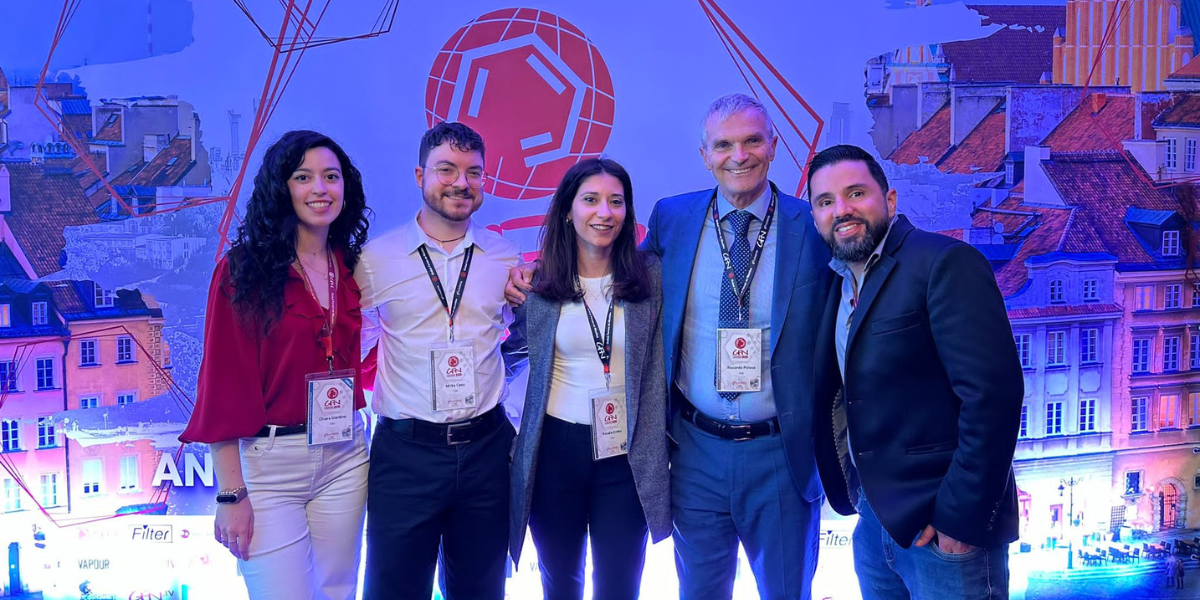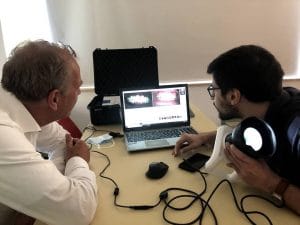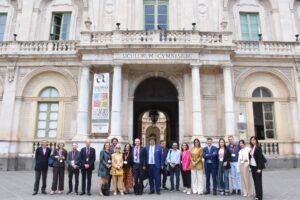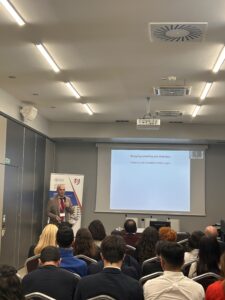At the GFN 2024, CoEHAR experts showed the latest results of the high profile research conducted in Catania and in affiliated labs around the world, demonstrating the versatility of their approach, which ranges from the replicability of scientific work to data on the real consumption of exclusive vapers
The latest edition of the GFN, the Global Forum on Nicotine, has just concluded and, as every year, it was the stage for sharing updates on research, communication and impact of harm reduction strategies.
Among the numerous panels of experts from around the world who gathered to share data and future perspectives, experts and researchers from CoEHAR shared significant updates on the activities of the Catania research center conducted over the past year.
Dr. Rosalia Emma, a researcher on the Replica project, one of CoEHAR’s most successful activities, opened the events. The project focuses on replicating international studies in the field of smoking harm reduction. To date, reproducibility in the scientific field, specifically in this area of research, requires high-level methodologies and scientific standards, which the scientists of Replica have managed to achieve after years of intense activity, creating a new benchmark at an international level.
Dr. Emma presented an insightful overview of the three-year Replica project. Emphasizing the significance of replicability in scientific research, the presentation showcased the meticulous replication of key studies, managed through a rigorous harmonization process. Overall results demonstrate reduced cytotoxicity of electronic nicotine delivery systems (ENDS) aerosol compared to traditional cigarettes, along with insights into endothelial cell migration and mutagenicity. The consistent reproducibility of findings underscores the project’s contribution to validating harm reduction strategies and enhancing confidence in research conclusion
“The talk at GFN Science concerning the Replica project aroused great interest and opened an important debate on the topic of replicability in science, emphasizing the need for rigorous methodologies and transparency to ensure that scientific findings can be consistently replicated” stated Dr. Emma.
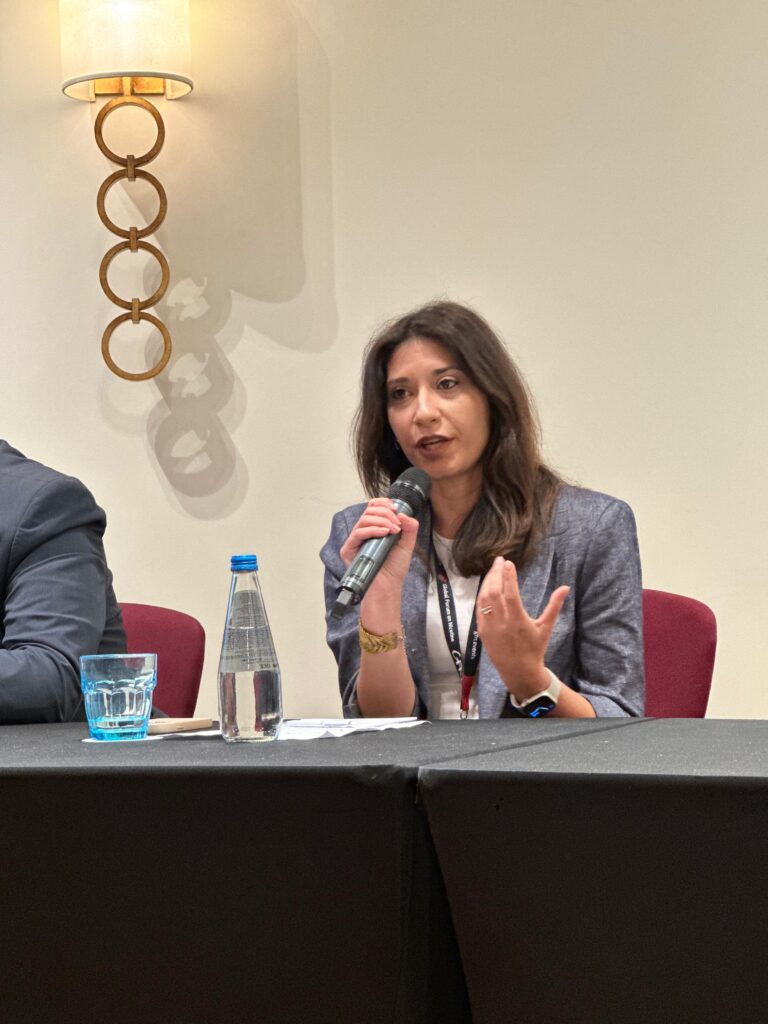
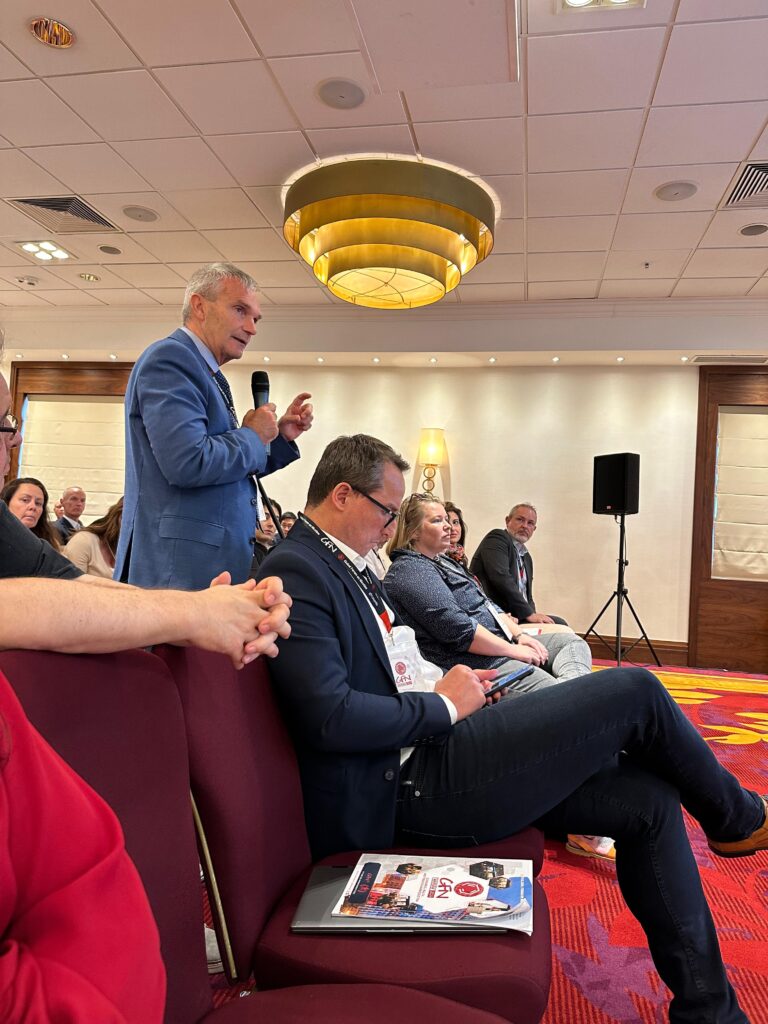
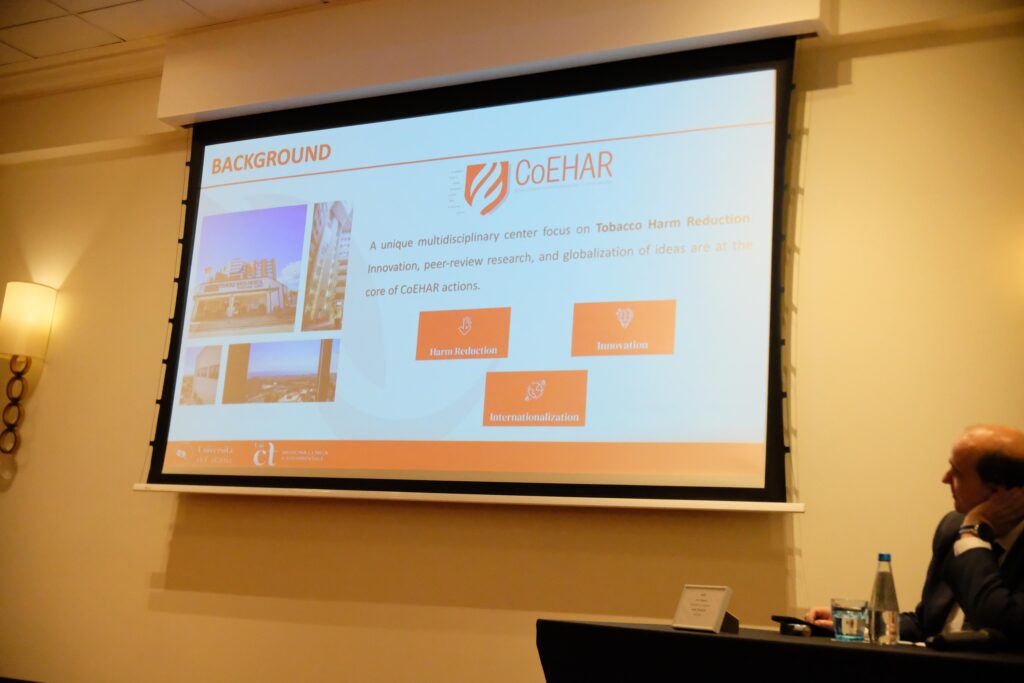
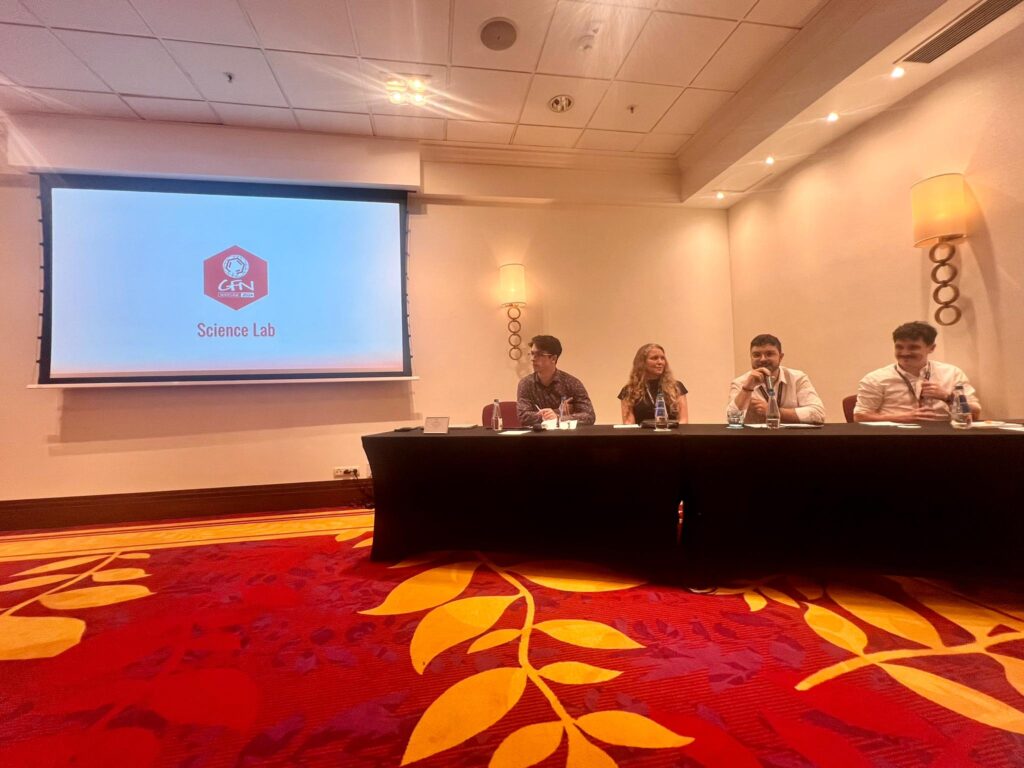
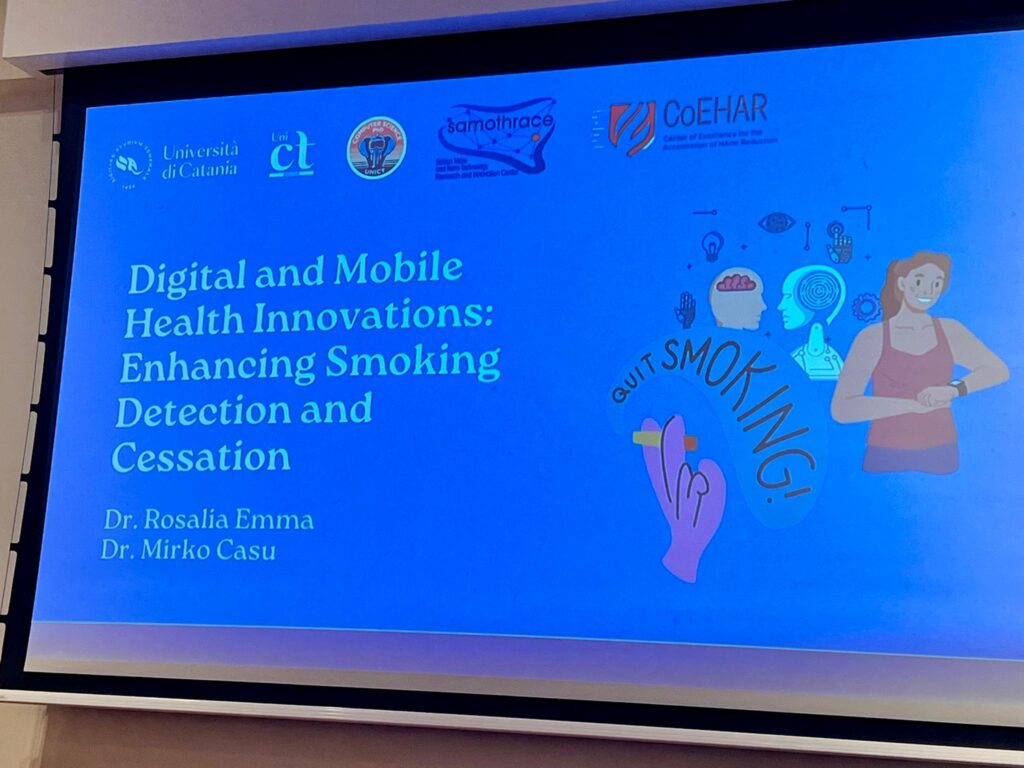
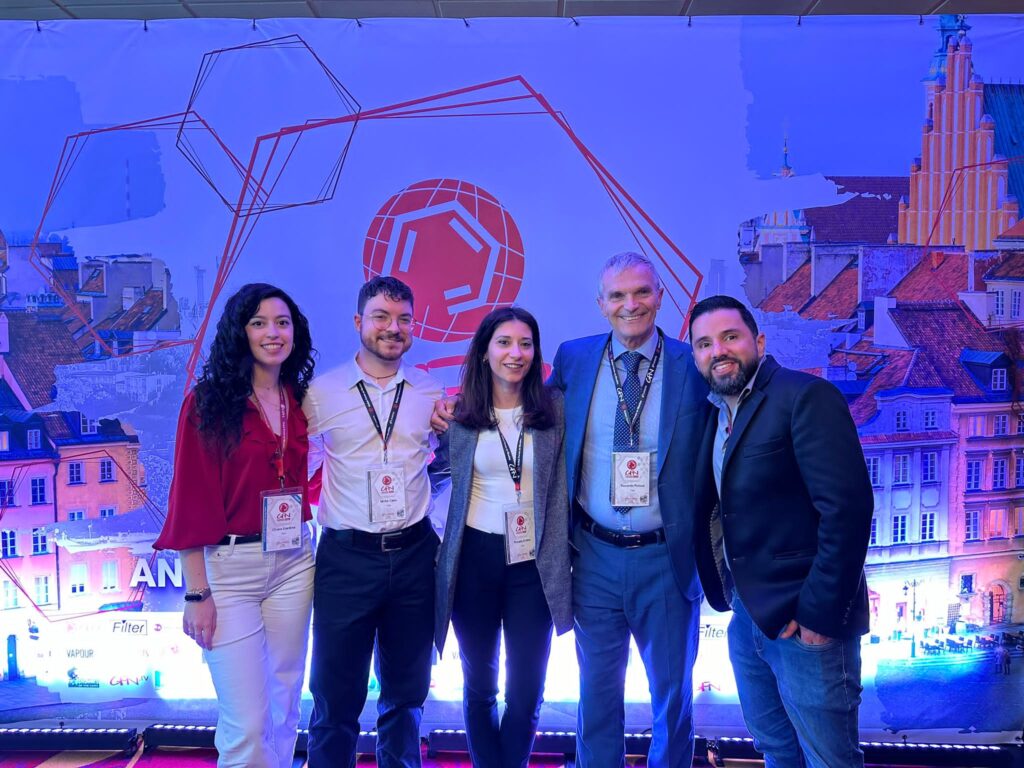
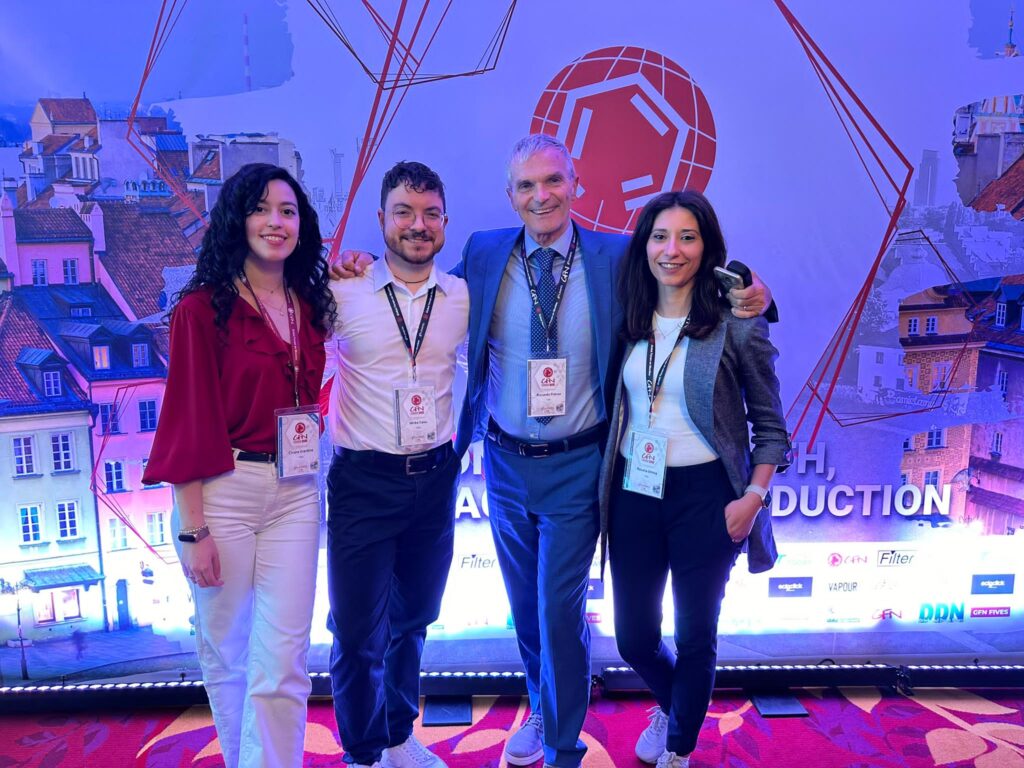
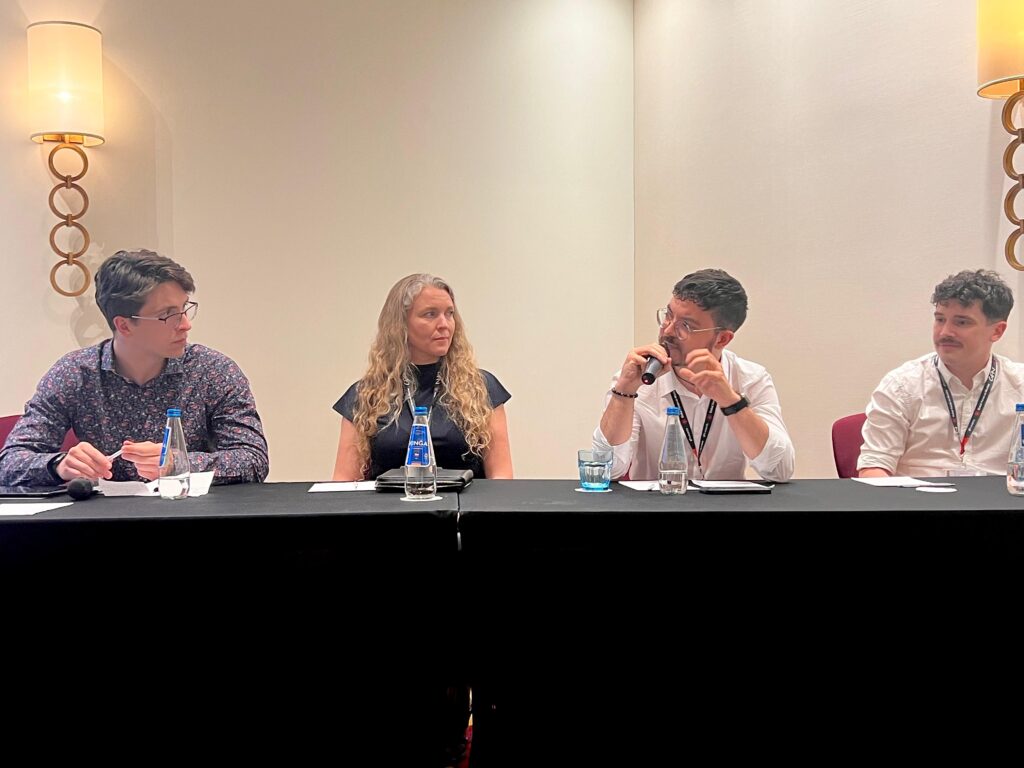
Dr. Mirko Casu, Ph.D. student in Computer Science and SAMOTHRACE project researcher at the University of Catania, presented: “Digital and Mobile Health Innovations: Enhancing Smoking Detection and Cessation”. The panel focused on the development of AI algorithms to recognize when a person who smokes begins the act of smoking: the goal is to train a neural network to intelligently recognize when this happens, in order to notify the user and interrupt the automatic behavior associated with this habit.
“Smoking cessation-trained AI algorithms may be implemented and delivered through popular wearable devices, like smartwatches. This will provide better self-monitoring and a way to break the automatic behavior related to igniting a cigarette”, so Dr. Casu.
The event was also an opportunity to present a preview of the VERITAS project, the latest endeavor by CoEHAR: an innovative project, the first in the world to evaluate the health effects of exclusive use of vaping products. Being able to determine the effects of exclusive use of nicotine vaping products in individuals without an established smoking history could provide key insights into assessing the actual long-term harm of such devices and provide necessary responses to health policies that still adopt a precautionary approach to harm reduction strategies.
Present at the event, Jeffrey Zamora, President of Asovape Costa Rica e Project Leader of VERITAS, who took part in the workshop that explored the horizontal relationship of physicians, consumer advocates, and regulators to promote science-based communication and harm reduction alternatives to advance public health.
Leading the delegation, Prof. Riccardo Polosa, CoEHAR Founder, who commented: “Happy to have witnessed the many CoEHAR projects at GFN 2024 once again. Now more than ever, it is essential to continue openly sharing research results to fuel a forward-thinking institutional and health debate on harm reduction choices, which represent the horizon for many smokers worldwide”.

